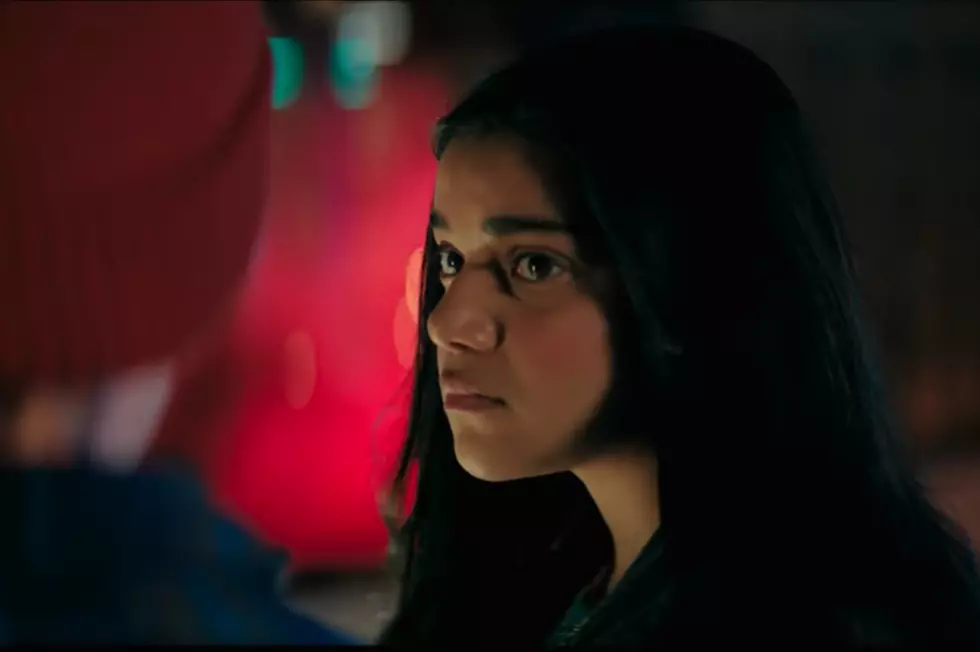
Super: Where is the LGBTQ Ms. Marvel?
Superheroes meant a great deal to my sense of queer identity when I was growing up. The men were rarely drawn as sex symbols, but their athleticism and close male friendships were as close to homoeroticism as the culture allowed me. The presence of strange outsider heroes like Cloak and Dagger, the X-Men, and even DP7, combined with the fantasy of superhuman champions fighting on behalf of the weak and oppressed, made superheroes integral to my sense of self-worth when everything else conspired to tell me I was worthless.
I still think there's something very queer about superheroes; the flamboyant costumes, the drag identities, the familial super-teams with their secret clubhouses. I also think that the queer subtext ought to be more evident in the text, and while I'm often told to look for queer stories elsewhere in comics, I don't want to be pushed out of the spaces that matter to me. LGBTQ people are everywhere. We should be seen, and recognized, everywhere.
With this new series of columns, 'Super', I'm going to look at some of the questions arising at the intersection of LGBTQ identity and superhero fiction, starting with a really vital one. Why isn't there a queer Ms Marvel at Marvel?
When I ask that question, I'm asking for something more than a gay or bisexual solo hero, though it's fair to say we need many more of those, especially at Marvel. I'm also not asking for Ms Marvel herself to come out as gay or bi, though I think that would be amazing.
I'm specifically asking for a queer teen solo hero; something I don't think we've ever seen at either of the big two superhero publishers. (Loki: Agents of Asgard could have been the first, but he wasn't really a teenager and he wasn't noticeably very queer.)
One of the reasons Ms Marvel is so important is that she serves as inspiration and role model. As a woman, a person of color, a Muslim, and a child of immigrants, she demonstrates that there are more types of heroes than most superhero fiction might have us believe. She represents the idea that everyone can be a hero, and everyone deserves heroes.
Few groups need heroes more than young people learning to accept queer identities in a world that's often hostile to that experience. Queer kids are unusually vulnerable, as rates of suicide and homelessness illustrate. Even their own families can't be counted on to support them, and their world is full of true villains. As I write this, a woman in Kentucky is being celebrated for her willingness to deny happiness to same-sex couples. That's a clear manifestation of the background radiation of hate that LGBTQ kids have to grow up with.
And these kids specifically need teen heroes, because teen heroes can speak to their experiences and dramatize their doubts and fears. LGBTQ youth need stories of self-discovery, first love, and growing responsibility.
There are several LGBTQ teen heroes around already, of course; especially in the Marvel Universe. But they're always in ensemble casts. Characters like Anole, America Chavez, Julie Power, Cullen Bloodstone, Iceman, and Karolina Dean are awesome, but none of them have their own title. None of their stories are explored with the focus that Marvel has brought to Kamala Khan and Miles Morales.
I'm focusing on Marvel here for a reason, and Kamala and Miles provide useful reference points; they were both created because people at Marvel fought for them. Kamala Khan, a Muslim woman of color, exists in the Marvel Universe because of Marvel editor Sana Amanat, another Muslim woman of color.
Characters receive patronage at Marvel all the time. Luke Cage, Carol Danvers, and Jane Foster became integral to the Marvel Universe after years of relative obscurity because editors or creators acted as their advocates. Amadeus Cho is the new Hulk because the editors decided on it. We're getting a Santerians series because they demanded it.
So it's reasonable to think that a queer or queer-friendly editor at Marvel could launch a queer teen hero in their own book, whether it's one of the established characters like America or Cullen, or a brand new character in the model of Kamala Khan --- perhaps using an old and familiar code name.
If we're ever going to get a book like this, it's entirely on Marvel to make it happen. Marvel has to want this, the way that it wanted Kamala Khan.
Marvel's credibility as a queer-friendly publisher has taken a few hits in recent years. Many of its LGBTQ characters have disappeared; a story that would have established Gambit's bisexuality was nixed, pushing him back in the X-closet with Storm (who hasn't had a girlfriend in thirty years); and editor-in-chief Axel Alonso recently insisted on the heterosexuality of Hercules, just because straightness is a presumed default. Marvel's supposed queer victories of the past ten years include a second run at the awful Rawhide Kid clown act, and the brief career of Freedom Ring, a gay hero slaughtered to illustrate the idea that some people aren't cut out to be heroes.
So it would look pretty good right about now for Marvel to announce a queer equivalent of its best-selling Ms Marvel series, especially from a queer-inclusive creative team.
But that's not the reason to do it. We need a queer teen solo hero because everyone deserves a share of the inspiration and aspiration that superheroes represent. The reason to do it is to change lives, and maybe even save a few. That sounds like hyperbole, but it's not. Heroes make a big difference when you don't have much else to hold on to.
If you're an LGBTQ kid who finds their escape in superheroes, you deserve to be shown what you're worth.
More From ComicsAlliance




![Marvel Legends’ Latest Spider-Man Wave Builds a Dream of a Sandman Figure [Review]](http://townsquare.media/site/622/files/2017/03/IMG_1721.jpg?w=980&q=75)




